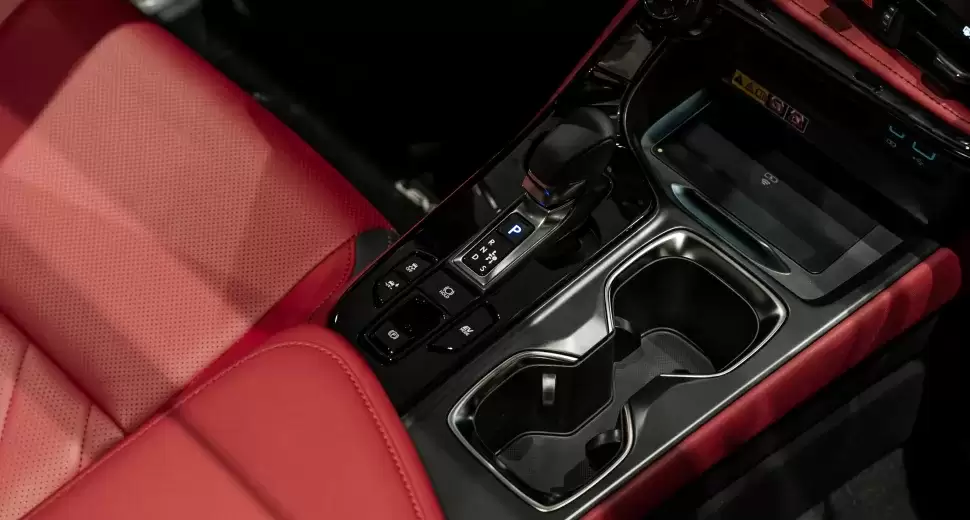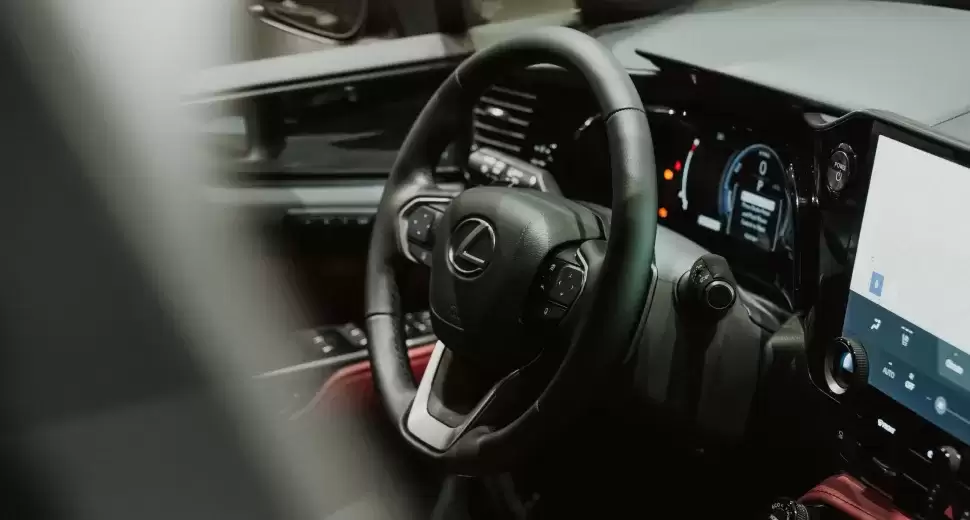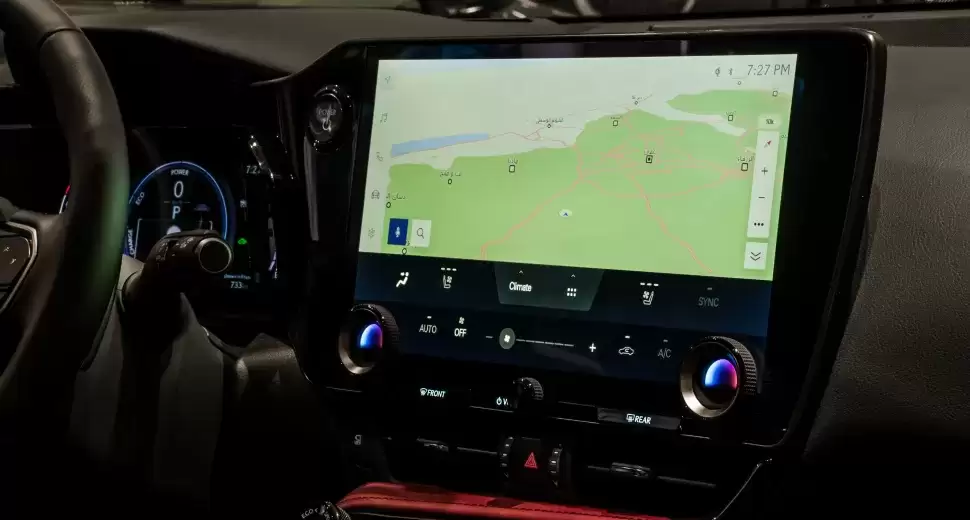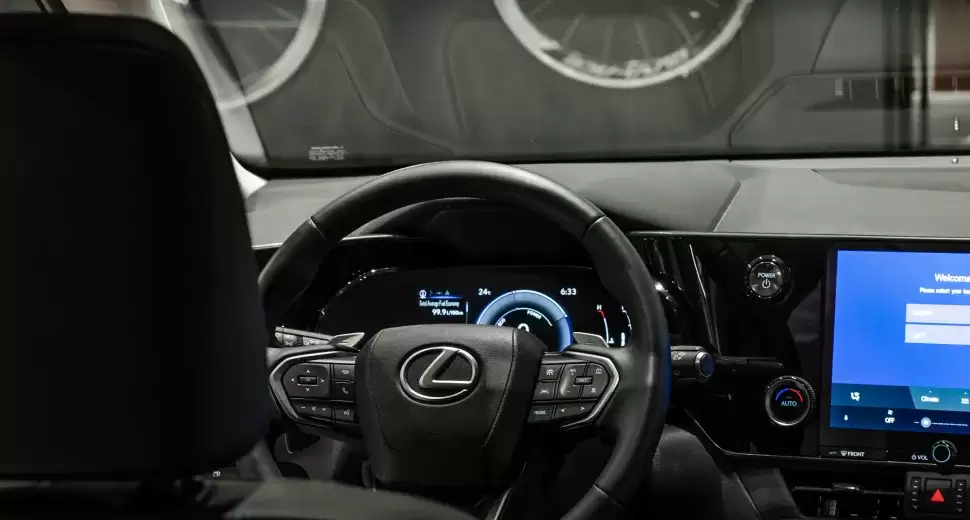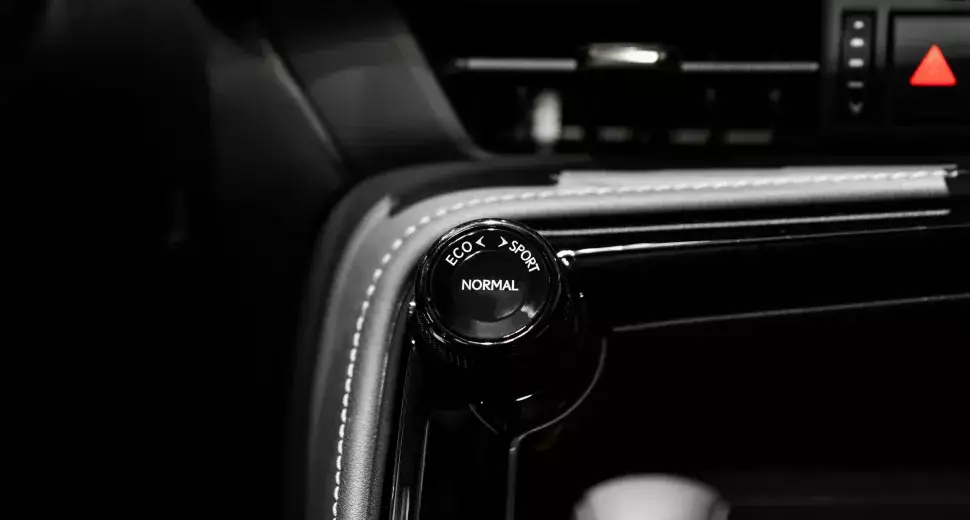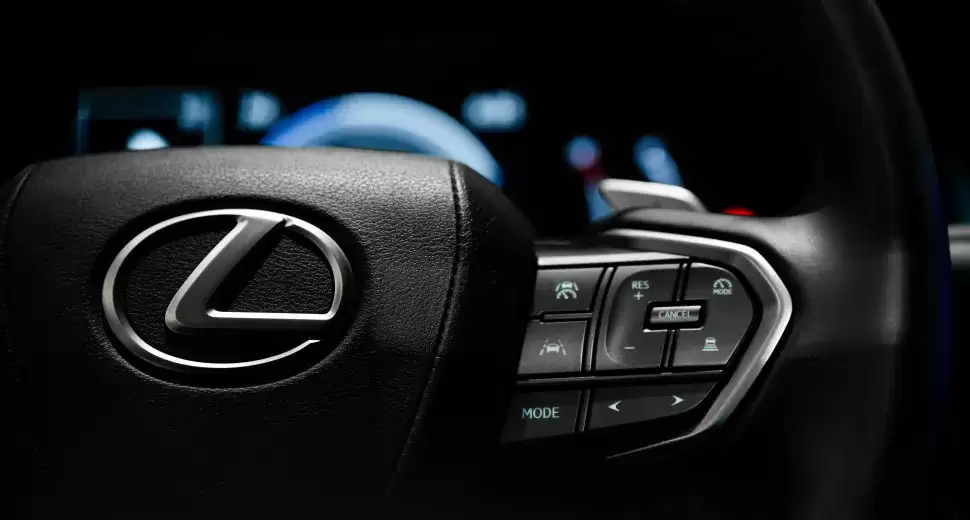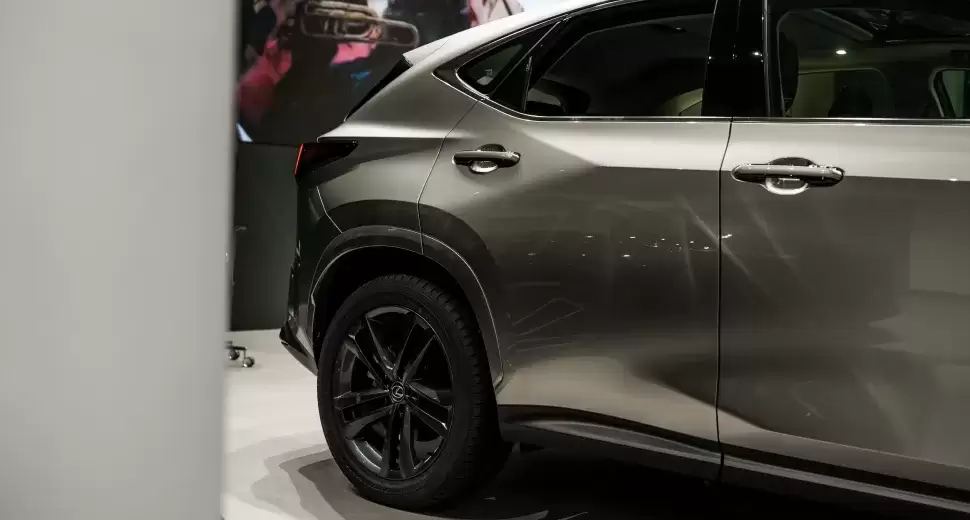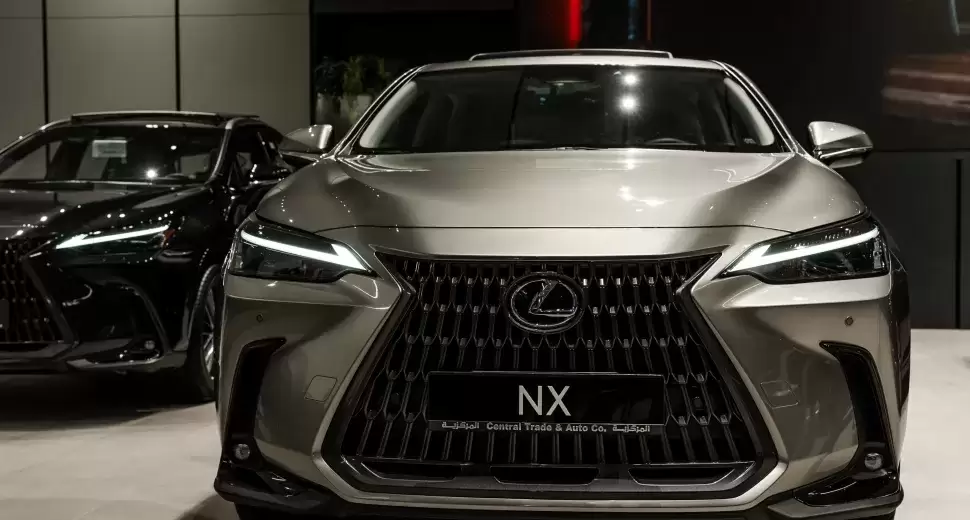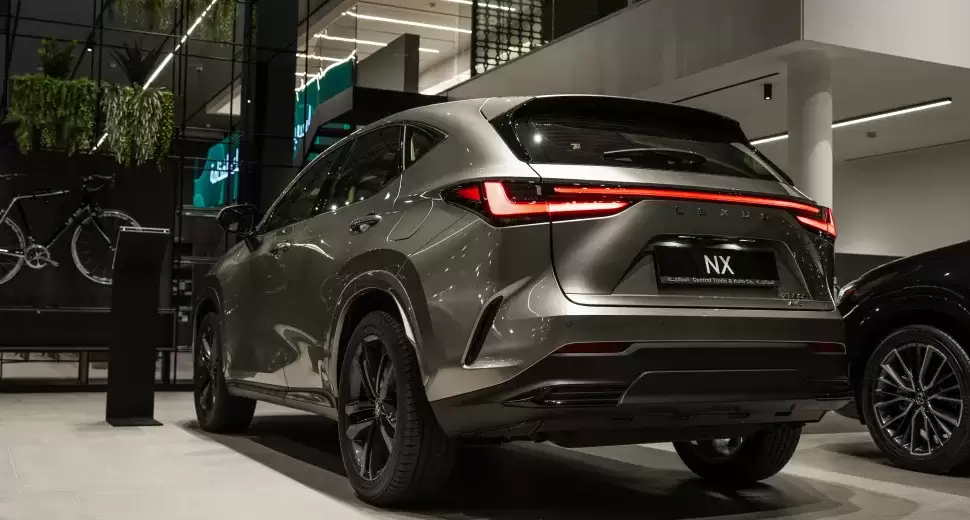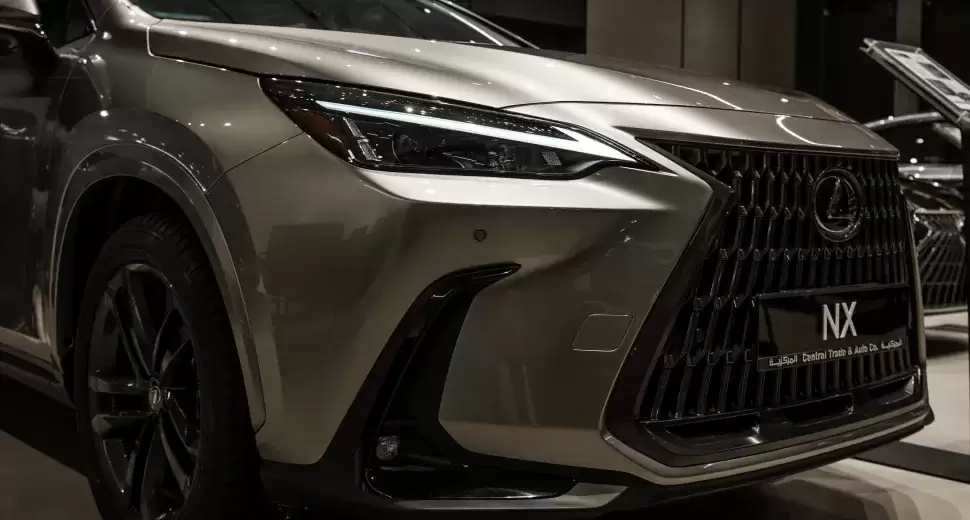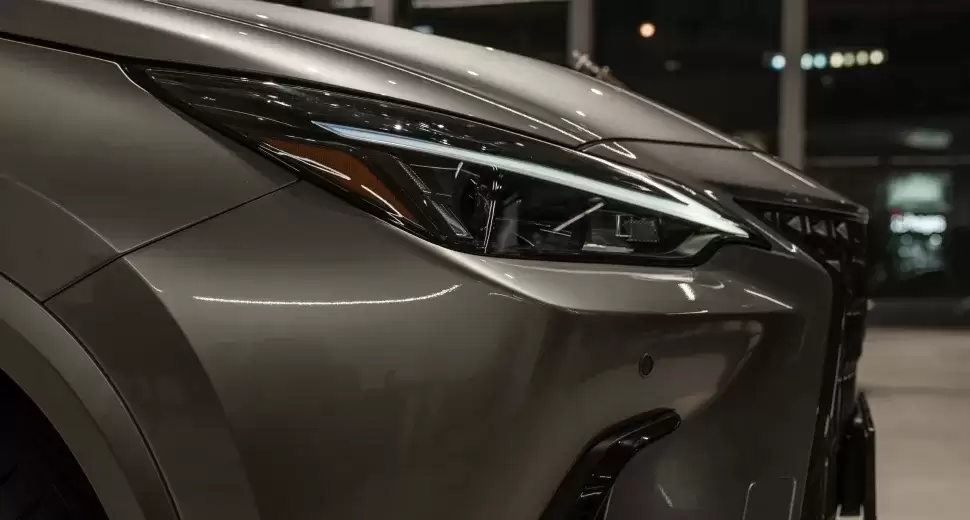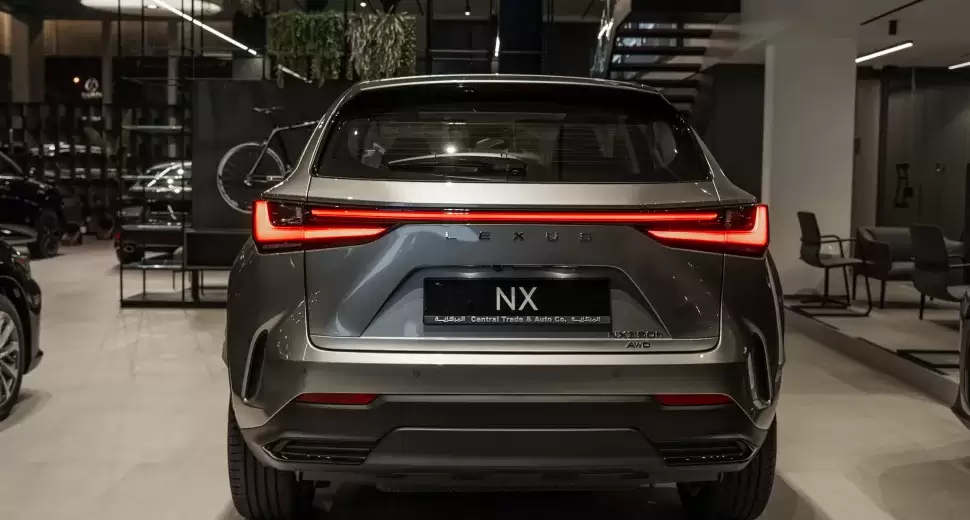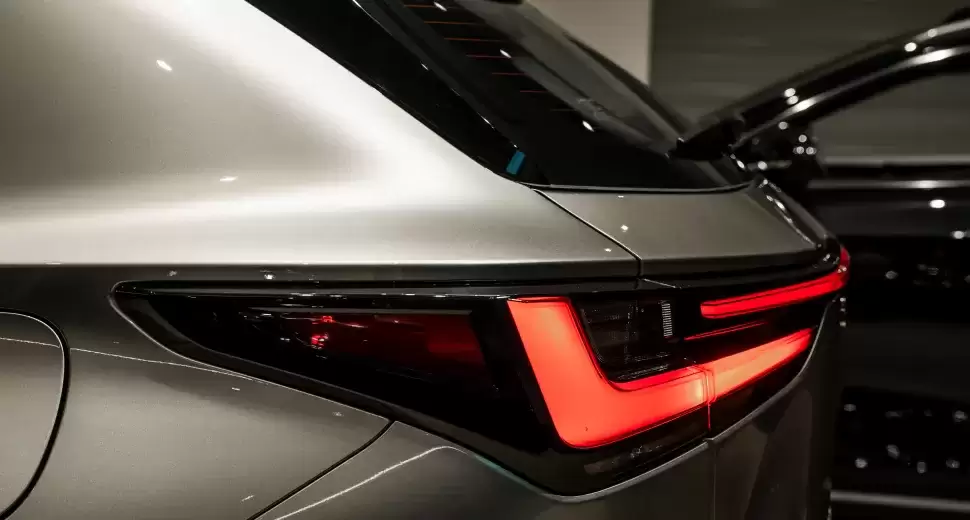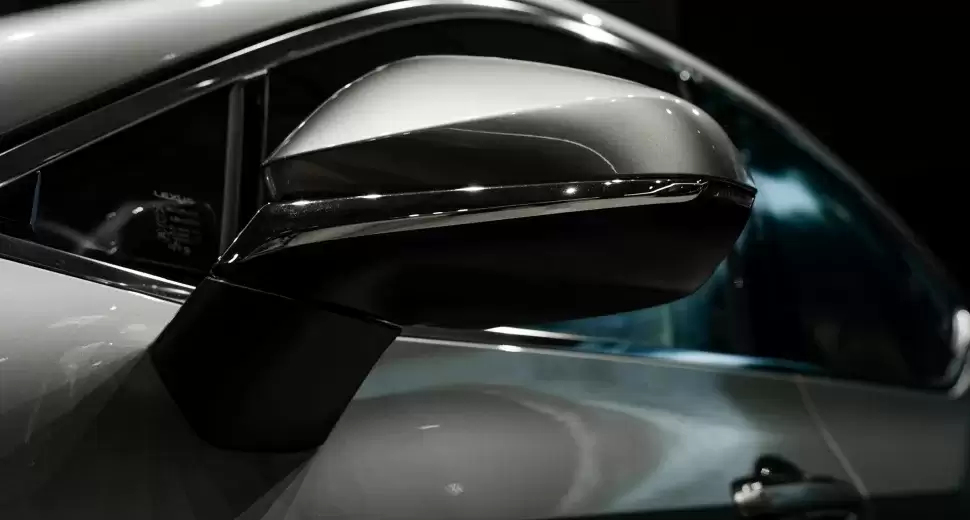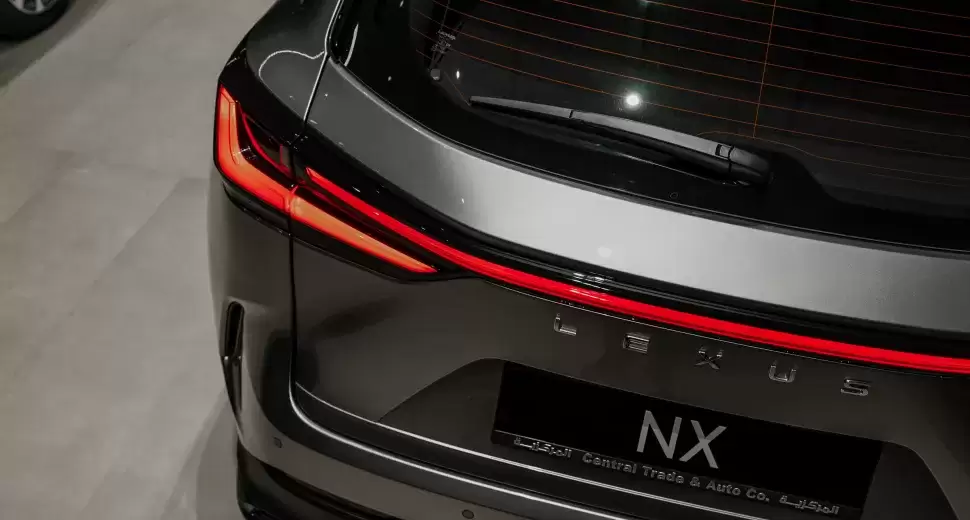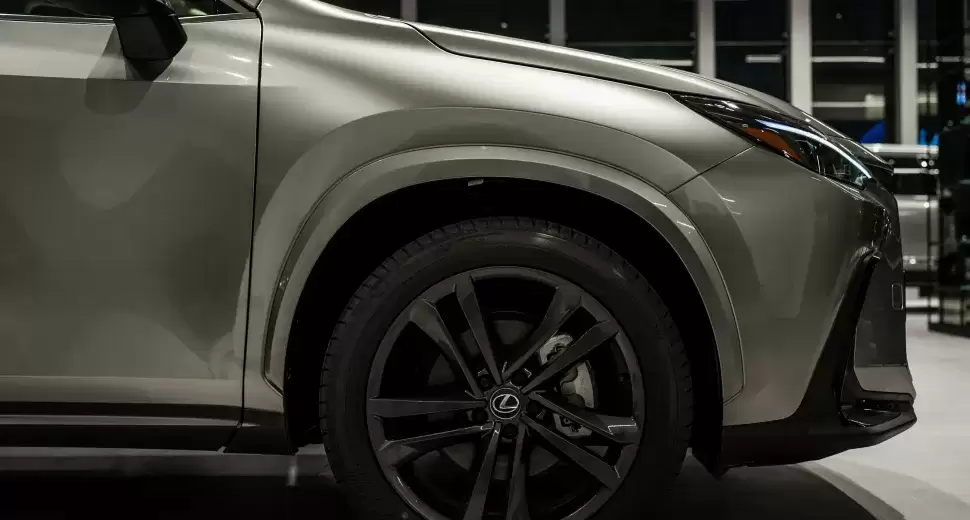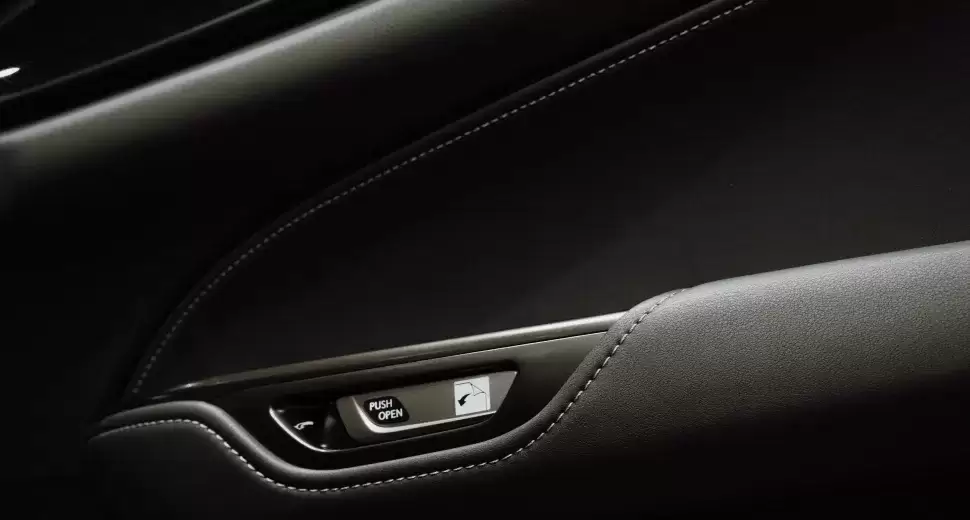OVERVIEW & SPECIFICATIONS
- Design
- Technology
- Performance
- Safety
Book an Exclusive Lexus Test Drive
Experience the luxury and performance of Lexus with a personalized test drive in Jordan.
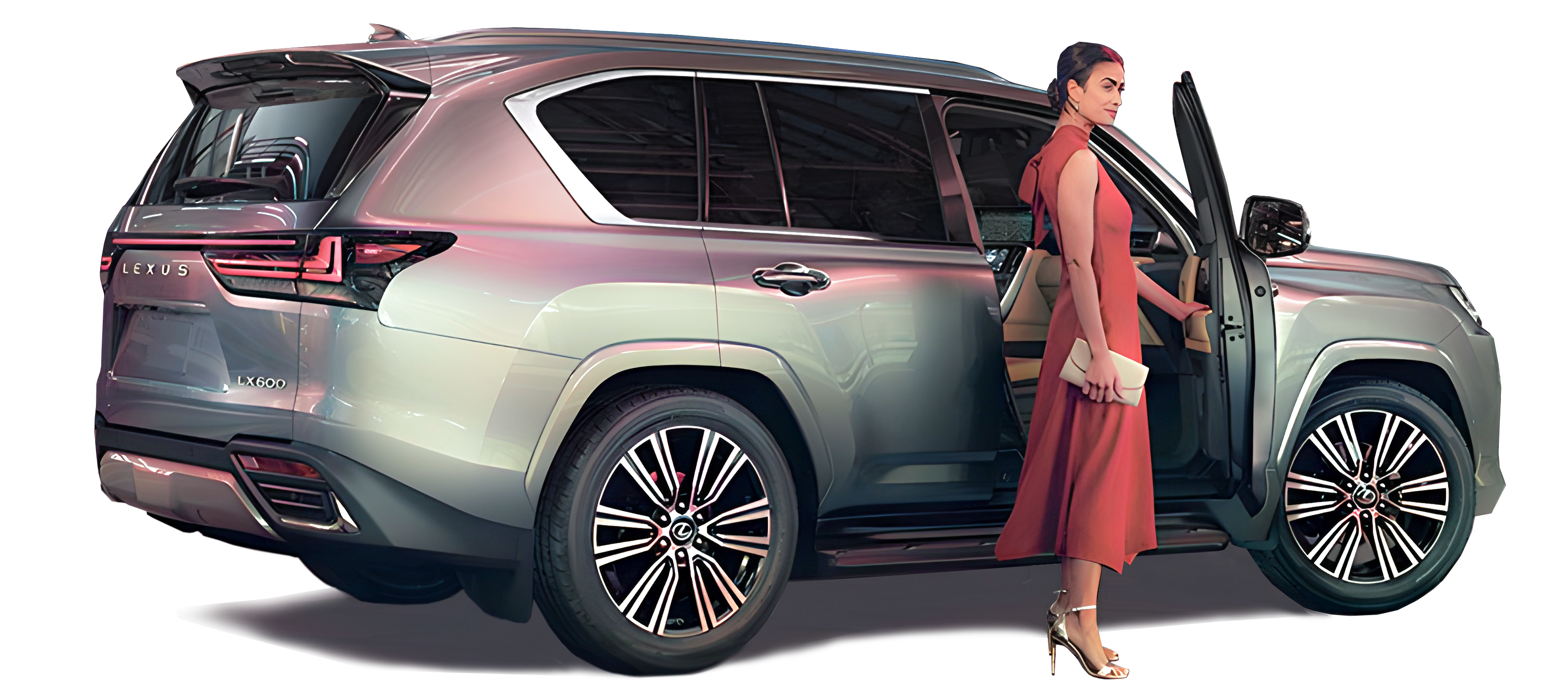
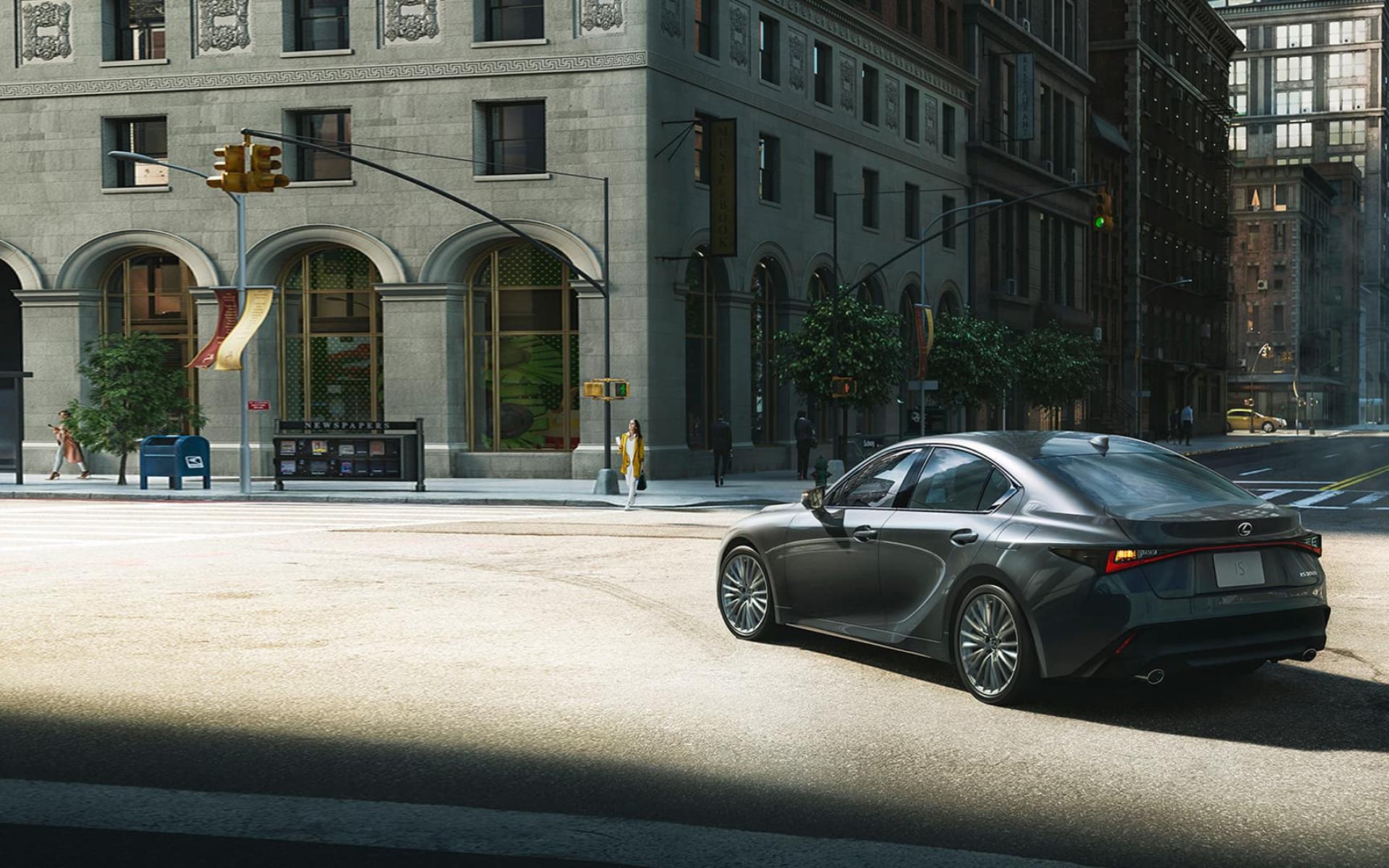
Why Choose
Markazia Lexus Jordan?
As the official Lexus representative in Jordan, Markazia Lexus is committed to delivering a premium ownership experience that extends beyond the vehicle itself:
-
4-year or 100,000 km manufacturer’s warranty (whichever comes first)
-
7-year or 150,000 km hybrid battery warranty (whichever comes first)
-
Guaranteed trade-in for your current vehicle
-
A secure investment with the highest resale value for Lexus vehicles
-
Peace of mind with service contracts handled by experts using genuine parts
-
High-quality after-sales services
-
Flexible in-house financing options and dedicated support
-
Main showroom on Mecca Street and service centers across Jordan
At Markazia, owning a Lexus is about more than driving - it’s about driving with confidence, comfort, and distinction.
FAQs
Do hybrid cars compromise on performance ?
Hybrid cars do not necessarily compromise on performance. In fact, many hybrid models, specifically those by Toyota and Lexus, lend impressive power and efficiency. Here are some key points to consider:
-
Instant Torque: Hybrid vehicles benefit from the electric motor's ability to deliver instant torque, providing quick acceleration and a smooth driving experience, especially at lower speeds. This can enhance overall performance, particularly in city driving.
-
Combined Power: Hybrids combine the power of a gasoline engine with an electric motor. This dual powertrain can result in a more balanced and responsive driving experience, with some hybrid models delivering performance comparable to or even better than their traditional gasoline counterparts.
-
Fuel Efficiency: While hybrids are designed primarily for fuel efficiency, this doesn't mean they sacrifice performance. Many modern hybrids are engineered to optimize both power and efficiency, allowing drivers to enjoy strong acceleration and handling while still achieving excellent fuel economy.
-
Advanced Technology: Hybrids often come with advanced technology, such as regenerative braking, which not only improves efficiency but also enhances driving dynamics. Some high-performance hybrids even feature multiple driving modes that enable drivers to choose between maximum efficiency or maximum power, depending on their needs.
-
Weight Considerations: Some hybrids may be slightly heavier due to the additional battery and electric motor components, which can affect handling in certain models. However, automakers typically engineer these vehicles to compensate for the added weight, maintaining a balance between performance and efficiency.
-
Sporty Models: Some hybrid models are specifically designed for performance enthusiasts. These vehicles are engineered to render thrilling driving experiences, combining the benefits of hybrid technology with high performance.
In summary, while the primary focus of hybrid vehicles is often on fuel efficiency and environmental benefits, many are designed to deliver strong performance as well. The combination of electric and gasoline power can result in a dynamic driving experience that not only meets but also surpasses the expectations of the most discerning of drivers.
Are hybrid cars truly better for the environment?
Absolutely. Hybrid cars are generally better for the environment compared to traditional gasoline-powered vehicles. Here’s why:
-
Reduced Greenhouse Gas Emissions: Hybrid cars produce fewer greenhouse gases than conventional vehicles because they rely partly on an electric motor, which emits no tailpipe emissions. This mitigates the overall carbon footprint, especially in stop-and-go city driving where the electric motor is most active.
-
Lower Fuel Consumption: Hybrid vehicles are more fuel-efficient, using less gasoline per mile than traditional vehicles. This not only saves fuel but also reduces the demand for fossil fuels, leading to fewer emissions associated with fuel extraction, refining and transportation.
-
Less Air Pollution: Since hybrids burn less fuel, they emit lower levels of harmful pollutants such as carbon monoxide, nitrogen oxides and particulate matter. This contributes to better air quality, particularly in urban areas.
-
Energy Regeneration: Hybrids utilize regenerative braking, which captures energy that would otherwise be lost during braking and uses it to recharge the battery. This process reduces energy waste and improves overall efficiency.
-
Potential for Renewable Energy Use: If the electricity used to charge the battery in plug-in hybrids comes from renewable sources - like wind or solar - the environmental benefits are even greater, further minimizing the vehicle’s carbon footprint.
While hybrids are not entirely without environmental impact - battery production, for example, involves mining and manufacturing processes that have their own ecological costs - they are a significant improvement over conventional vehicles in terms of emissions and fuel efficiency. Overall, hybrids present an eco-friendlier option for reducing pollution and conserving energy.
Are genuine spare parts for hybrid cars available in Jordan?
Yes. At Markazia Lexus, we offer genuine spare parts for hybrid vehicles at competitive prices.
How often should hybrid cars be maintained?
Just like conventional vehicles, hybrid cars need to be maintained regularly. However, the maintenance schedule can vary depending on the manufacturer and model. As a rule of thumb, here are the key maintenance intervals for hybrids:
-
Oil Changes: Hybrid vehicles typically require oil changes every 10,000 km depending on the type of oil used and the manufacturer’s recommendations, as well as every 80,000 km for the transaxle.
-
Brake Maintenance: Due to regenerative braking, which reduces wear and tear, brake pads and rotors on hybrids tend to last longer. However, they should still be inspected regularly, typically during routine service intervals.
-
Battery Health Checks: The hybrid battery should be checked periodically, especially as the vehicle ages. Most manufacturers recommend a battery health check every 10,000 km to 15,000 km, though hybrid batteries are designed to last many years without issues.
-
Tire Rotation and Alignment: Like all vehicles, hybrids require regular tire rotations and alignments to ensure even wear and optimal performance. This is usually recommended every 10,000 km.
-
Cooling System Maintenance: Hybrid cars often have two cooling systems; one for the engine and another for the hybrid battery. Both systems must be checked and serviced, typically every 30,000 km to 50,000 km.
-
Transmission Fluid Check: The transmission fluid should be inspected regularly and replaced as needed, usually every 30,000 km to 60,000 km.
-
General Inspection: Regular inspections of the vehicle’s electrical systems, belts, hoses and other components must be conducted during routine maintenance visits, approximately every six months or 5,000 km to 7,500 km.
It is important to follow the manufacturer’s recommended maintenance schedule as outlined in the owner’s manual, as hybrid systems may have specific requirements. Regular maintenance ensures the longevity and optimal performance of your hybrid vehicle.
Do hybrid cars retain high resale value?
Yes. Given their combination of fuel savings, environmental benefits and strong reliability, hybrid cars generally retain a high resale value. Several factors contribute to this:
-
Fuel Efficiency: As fuel prices fluctuate, the demand for fuel-efficient vehicles like hybrids remains strong. Buyers are often willing to pay a premium for the long-term fuel savings that hybrids offer.
-
Environmental Awareness: Increasing environmental concerns have made hybrids more attractive to a broader audience. This growing demand helps maintain their resale value.
-
Reliability and Durability: Hybrid vehicles, particularly those from reputable manufacturers like Toyota and Lexus, are known for their reliability and durability. This reputation for quality enhances their resale value.
-
Lower Depreciation Rates: While all vehicles depreciate over time, hybrids tend to have lower depreciation rates compared to conventional gasoline-powered cars. This is partly due to their ongoing demand and the perception that they are a smarter long-term investment.
-
Technological Advancements: Hybrids incorporate advanced technology that remains appealing to buyers even as the vehicle ages, further helping to preserve their resale value.
-
What are the main advantages of hybrid cars?
-
Fuel Efficiency: Hybrid vehicles combine an internal combustion engine with an electric motor, enabling them to use less fuel than traditional gasoline-powered cars. This results in significant fuel savings and lower operating costs.
-
Reduced Emissions: Hybrids produce fewer emissions compared to conventional vehicles, making them more eco-friendly. The electric motor reduces reliance on the gasoline engine, especially in stop-and-go traffic, leading to lower carbon dioxide emissions.
-
Regenerative Braking: Hybrid cars use regenerative braking systems, which capture energy typically lost during braking and convert it into electricity to recharge the battery. This enhances overall efficiency and minimizes wear on the braking system.
-
Lower Operating Costs: With improved fuel efficiency and regenerative braking, hybrid vehicles generally have lower operating costs, including fuel, maintenance and repairs.
-
Extended Range: Hybrids can switch between electric and gasoline power, providing extended driving ranges compared to fully electric vehicles, reducing range anxiety.
-
Quiet Operation: When running on electric power, hybrids are quieter than traditional gasoline-powered vehicles, providing a more pleasant driving experience, particularly in urban environments.
-
Flexibility: Hybrid vehicles offer the flexibility of both electric and gasoline power, ensuring reliable performance in various driving conditions, from city streets to highways.







